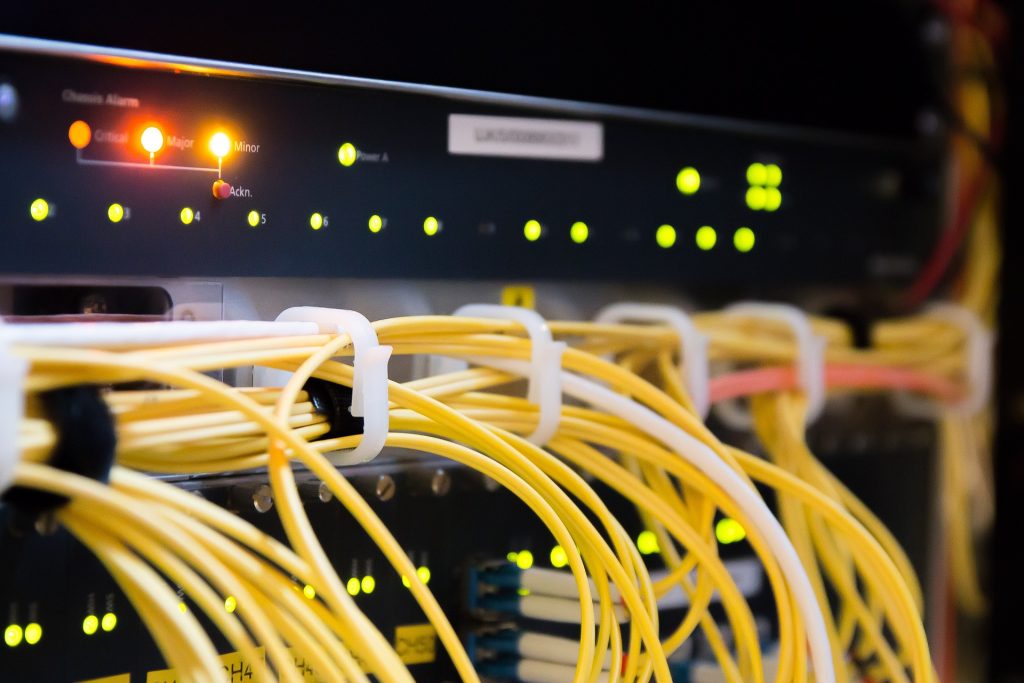In 2017, BT Openreach announced that all analogue (PSTN) lines and ISDN lines will be switched off by the year 2025, being replaced with VoIP- with some places being hit by the switch off even earlier.
BT state that they are working promptly to move all their customers from the old analogue public switched telephone network (PSTN) and ISDN service, to a fully digital network.
“We’ve already started” BT says. “We plan to have moved everyone over before Openreach stop the PSTN (and ISDN) service in 2025.”
IN 2025 ALL ‘TRADITIONAL’ PHONE LINES WILL BE TURNED OFF. MAKE SURE YOU ARE READY!
Will the PSTN and ISDN switch off affect your business?
Yes. It sure will.
You may be using analogue or ISDN lines for calls, alarms, fax machines, PDQ machines, CCTV or to support your broadband services and these will need to be replaced by something called VoIP.
Why is this happening?

Bye Bye PTSN (and ISDN)
PTSN has been the foundation for the UK’s phone network for decades and it has served its purpose tremendously. But, it’s no secret that we’ve all witness dramatic changes in technology over recent years. Think about our smartphones, the applications we use, the cloud, Zoom, Teams, Skype, and so on.
It’s an ever-growing phenomenon.
Put simply, PSTN has become outdated and is due a farewell trip to the graveyard of technology. It has become antiquated, pricey to maintain, and it simply isn’t necessary anymore. It’s already been overtaken by newer technologies such as fibre broadband.
In short, BT Openreach are switching off the PSTN and ISDN network to make way for a fully digital network, mainly VoIP, which can meet the demands of the forever-evolving new digital era.
What is replacing PSTN and ISDN?
VoIP is the main technology that is replacing PTSN and ISDN. VOIP stands for Voice Over Internet Protocol or Voice Over IP and is the term used for communications technologies that enable voice and video calls to be made via the internet rather than using the Public Switched Telephone Network (PSTN) or Plain Old Telephone Service (POTS).
This means you will no longer have the need for a costly, old-fashioned analogue phone line running through your offices.
You will benefit from better call quality, lower overall costs, and a whole lot of flexibility. See our full list of VoIP advantages here.
As well as VoIP, there is Session Initiation Protocol (SIP). Ebcgroup.co.uk say: SIP trunks enable you to use VoIP by connecting your phone system to the public phone network from an Internet Protocol (IP) system. SIP can connect to the majority of existing systems, which makes it a popular choice for those switching across to an internet-based phone solution.
Is VoIP really better than PSTN?
Yep, it sure is.
In this day and age, technology has advanced tremendously, and naturally so has the demands of modern communications. The PSTN network is increasingly out of balance with these demands, and something has take its place.
As the world switches to mobile and internet communications, there is a higher demand than what the traditional technologies (PSTN and ISDN) were designed to deliver, and they simply can’t provide what is needed anymore. Thus explaining why BT Openreach are switching to IP (Internet protocol).
The Advantages of VoIP phone systems?

Low cost
VoIP can drastically reduce your businesses running costs by eliminating the need for lots of individual telephone lines, for it’s a low cost alternative to the traditional telephone system. VoIP uses your internet/broadband connection to make and receive your telephone calls, so you can rely solely on this.
The future is saying goodbye to PSTN and ISDN for good.
Higher Call Quality
Want to wave goodbye to that muffled sound quality from PSTN lines once and for all? Yep, we thought so- then VoIP is the way to go.
Because VoIP uses your internet connection, it offers much higher call quality when compared to its’ alternatives. Relying purely on an internet connection, a VoIP telephone system provides its users HD voice with crisp audio.
Easily Scalable
One huge advantage to VoIP is how scalable the system is. Because VoIP telephone systems use the internet for calls, adding new users is super easy and you won’t need to stress about the hassle of provisioning new lines- instead, you can just add phones and licences if required. VoIP can adapt to meet your current requirements, as well as be there for any future changes.
Flexibility
Flexibility and portability is crucial for any business, and another advantage of a VoIP telephone system is that it enables businesses to be as mobile and as portable as possible. When using a VoIP network- you are able to enable mobile users, as well as desk-based users to connect to your telephone system.
Prepared for the ISDN switch off
As we mentioned, a vital benefit switching to a VoIP phone system is that you will be fully prepared for the ISDN switch off in 2025, and move into a new realm of technology fully equipped with the latest phone systems.
Future proofing
VoIP gives your business a full future proofing blanket; Old technologies are being faded out – ISDN, and by upgrading to a VoIP phone system, you can be sure that your telephony is modern and doesn’t run the risk of becoming old-fashioned or redundant.
Need we say more!
So now you know the benefits of VOIP and what happens if you don’t move before the big ISDN switch off you will need someone to make the transition as seamless as possible, we can help!
Check out our VOIP page or Get in Touch today.

